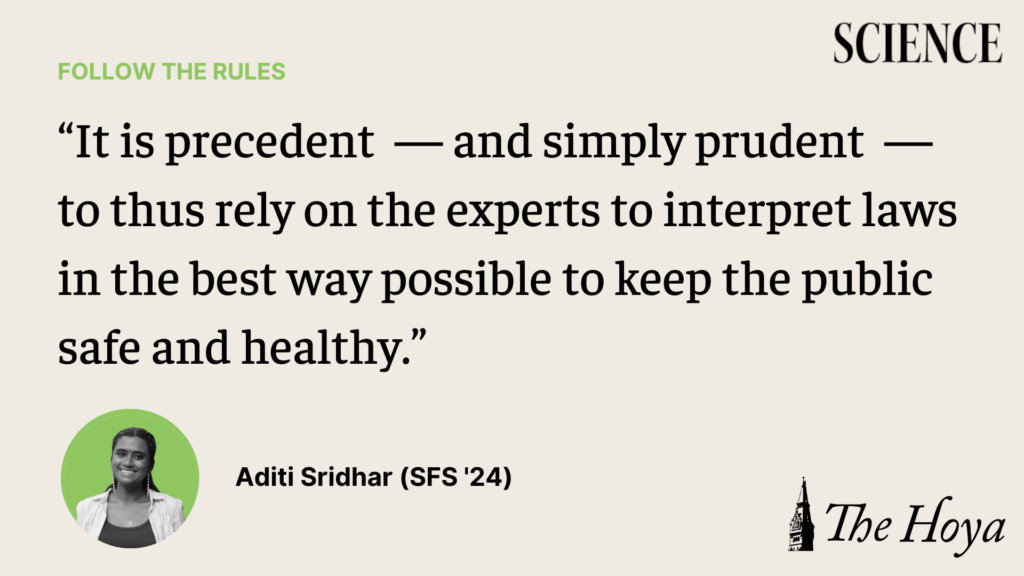Common sense tells you that when you are doubtful about something far too technical for your own expertise, you listen to the experts. Whether it be reading an article or two on the internet, talking to a professor or asking older peers for advice, we’ve all done it.
Therefore, it should also be common sense that experts in a field should be the individuals determining the intricacies of policy in that given discipline.
The Supreme Court case Loper Bright Enterprises v. Raimondo, scheduled earlier this month and set to hear oral arguments this January, could upend the Chevron doctrine — the legal precedent that executive agency experts should decide on regulations. Reversing this, the case’s likely outcome, could have enormous ramifications for the question of who is making public health and environmental regulations: experts or judges?
The Supreme Court articulated the Chevron doctrine, also referred to as Chevron deference, in the majority opinion of the 1984 case Chevron v. NRDC. In a 6-0 unanimous decision, the justices concluded that administrative agencies should be allowed to interpret statutes to formulate regulations, provided their interpretations do not “obviously contradict” the text of the law. As long as an executive agency has interpreted a statute in a “reasonable” manner, courts must accept it.
While Chevron was not lauded as a watershed opinion at the time, this case soon became the most cited precedent in administrative law, since it applied to a plethora of regulatory disputes in lower courts. Chevron is a key example of the judiciary branch ceding authority to the executive branch, thereby expanding executive power.
This is not a direction that the current conservative Supreme Court wants to go in.
For conservative, textualist judges, the Chevron doctrine is a matter of controversy. They state that such deference to executive agencies is an unconstitutional transfer of the Article III judicial branch power to interpret the law. Furthermore, judicial conservatives seek to promote limited government and hand down decisions that devolve power away from the federal bureaucracy. However, in doing so, they might snatch away key protections for the Food and Drug Administration (FDA) and the Environmental Protection Agency’s (EPA) science-related regulations.

Currently, textualists dominate the Supreme Court, thus increasing the likelihood that the court will do away with Chevron deference after Loper Bright.
The plaintiffs in Loper Bright argue that a National Oceanic and Atmospheric Administration (NOAA) Fisheries rule that makes herring vessel operators responsible for paying the salaries of monitors, who remain on board the herring vessels to prevent overfishing, is unconstitutional. Lower courts have upheld this rule using the Chevron doctrine, but the Supreme Court is poised to overturn — or severely limit — this established part of case law and shrink the size of the administrative state.
Members of Congress neither have the time nor the subject expertise to micromanage the regulations promulgated as a result of legislation they have passed. It is precedent — and simply prudent — to thus rely on the experts to interpret laws in the best way possible to keep the public safe and healthy. Not only do judges not have the scientific know-how to, say, read weather patterns or determine the efficacy of pharmaceuticals, but moreover, the removal of Chevron deference will result in sheer chaos and confusion among the hundreds of lower court judges who regulate using vastly different standards.
Moreover, Congress often uses ambiguous language in their legislation deliberately because they want to leave room for executive agencies to make the final decision on how to write the best regulation that is most in line with the statute.
Judges are not scientists. Scientists are not judges. To transpose one’s role onto the other would be disastrous.








